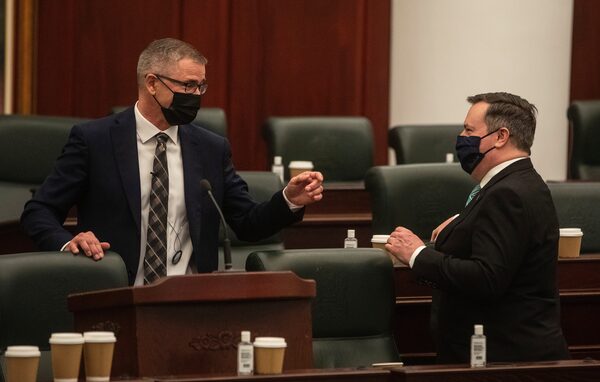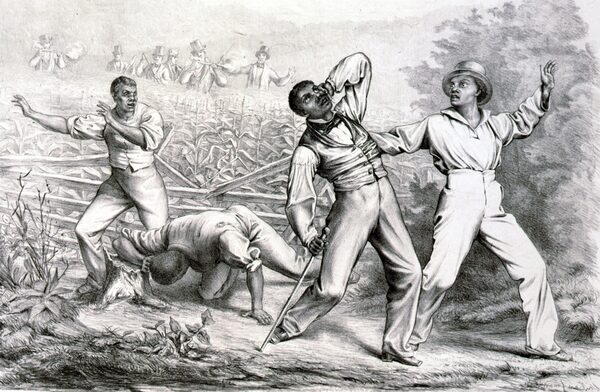Good morning,
The head of Canada’s largest pension fund flew to the United Arab Emirates to receive a COVID-19 vaccine, jumping the domestic queue and travelling abroad despite a federal advisory to avoid leaving the country.
Mark Machin is CEO of the Canada Pension Plan Investment Board (CPPIB), which manages $476-billion on behalf of Canadians. He received his vaccine in Dubai, and is still there with his partner. Machin said the trip was supposed to be “very private” and that he left for a number of reasons, some of which were “deeply personal.”
More COVID-19 news
- Fewer than half of the provinces and territories have online booking systems up and running so members of the public can make their appointments for the largest vaccination campaign in Canadian history. Those who have launched their systems have faced crashes and bugs.
- Ontario faces a critical few weeks as it monitors the spread of more-contagious variants of COVID-19, while the government considers a new lockdown on hard-hit Thunder Bay.
On Feb. 25, 2021, people wait for the bus in Thunder Bay, Ont., which is currently experiencing a resurgence of COVID-19.David Jackson/The Globe and Mail
This is the daily Morning Update newsletter. If you’re reading this on the web, or it was forwarded to you from someone else, you can sign up for Morning Update and more than 20 more Globe newsletters on our newsletter signup page.
Alberta budget projects $18.2-billion deficit and spending freeze
The Alberta government will rely on a rebound in resource revenue to stem the bleeding from the COVID-19 pandemic and an economic downturn that has dragged on for years The province hopes to recover to prepandemic economic activity by 2022.
The United Conservative Party’s third budget projects an $18.2-billion deficit for 2021-22, which is second only to its record $20.2-billion shortfall estimated in the current year. Finance Minister Travis Toews acknowledged there is no way he can fulfill a previous pledge to balance the budget by the end of the UCP’s first term.
- Opinion: “The glimmers of optimism in the provincial budget come mainly from the discussion of years further out, when Alberta has theoretically emerged from the current crisis mode,” Kelly Cryderman writes.

Alberta Premier Jason Kenney, right, and Alberta Minister of Finance and President of the Treasury Board, Travis Toews speak after delivering the 2021 budget in Edmonton Alta, on Thursday February 25, 2021.JASON FRANSON/The Canadian Press
Defence chief steps aside amid investigation into misconduct allegations
Admiral Art McDonald voluntarily stepped aside late Wednesday evening after being informed he is under investigation over unspecified allegations. It is the second military police investigation into allegations of sexual misconduct levelled at the Forces’ most senior commanders.
McDonald recently replaced retired general Jonathan Vance as chief of the defence staff, who is also under investigation over allegations of sexual misconduct during his time as a top commander.

Vice Admiral Art McDonald, commander of the Royal Canadian Navy, addresses a media briefing concerning the results of HMCS Chicoutimi Health Surveillance Study, in Halifax on July 11, 2019.Andrew Vaughan/The Canadian Press
Got a news tip that you’d like us to look into? E-mail us at tips@globeandmail.com Need to share documents securely? Reach out via SecureDrop
ALSO ON OUR RADAR
Hundreds massacred by Eritrean troops in Ethiopian town, Amnesty says: The massacre in the Tigray region, which left bodies strewn across the streets and cobblestone plazas of the historic Christian pilgrimage site, should be investigated by the United Nations as a possible war crime and a crime against humanity.
Ottawa has not provided adequate support to First Nations for safe drinking water: Auditor-General Karen Hogan said drinking-water advisories remain a constant for many communities, with almost half of the existing advisories in place for more than a decade.
No indication federal security agencies were consulted before Beijing visa centre was approved: The Globe has reported that Canada’s visa-application centre in Beijing is operated by Beijing Shuangxiong Foreign Service Co., which is owned by the Beijing Municipal Public Security Bureau.
Hobbyists are starting their own micro-ecommerce businesses: A survey conducted this past January by Angus Reid for the car-sharing company Turo reported that 34 per cent of respondents have taken on a “side hustle” since the pandemic started or plan to do so in the coming year. These numbers suggest that people who are starting side businesses aren’t doing so just for the money.
Big Six banks beat own predictions: Massive government stimulus programs, roaring financial markets and clients leaning on banks to help them through the crisis have created an unusually opportune climate for banking, in spite of the damage the novel coronavirus has done to the global economy and public health.
MORNING MARKETS
Global markets retreat: Global stocks fell on Friday, with Asian shares down by the most in nine months, as a rout in global bond markets sent yields flying and spooked investors amid fears the heavy losses suffered could trigger distressed selling in other assets. Just before 6 a.m. ET, Britain’s FTSE 100 was down 0.46 per cent. Germany’s DAX and France’s CAC 40 fell 0.19 per cent and 0.37 per cent, respectively. In Asia, Japan’s Nikkei ended down 3.99 per cent. Hong Kong’s Hang Seng lost 3.64 per cent. New York futures were little changed. The Canadian dollar was trading at 79.15 US cents.
WHAT EVERYONE’S TALKING ABOUT
There’s only one group of Canadians the government can get away with torturing
Robyn Urback: “If regular Canadians can’t be convinced to care about the effects of solitary confinement on prisoners’ welfare, perhaps they can come around to caring about it for the sake of their own.”
It’s time for Canada to strengthen our ties with Cuba
John Kirk and Stephen Kimber: “We can – and should – help by providing food assistance. Compared with Cuba, we are a wealthy country with relatively few food challenges. We do not have the same philosophies on political systems, but in the past have agreed to disagree with civility.”
TODAY’S EDITORIAL CARTOON

Brian Gable/The Globe and Mail
LIVING BETTER

PHOTO ILLUSTRATIONS FOR MADE UP BEAUTY PRODUCTS FOR STORY PUR-FB-UNBEAUTY-0226Illustration by The Globe and Mail; Source iStockphoto
A glimpse of where the future of unbeauty trends could go
When Sara Carstens, a Gen Z model, posted a TikTok video of herself applying a brown lip crayon under her eyes to emulate dark circles, her “unbeauty” tip went viral with more than seven million views. “The entire goal is to normalize dark circles,” she said.
But why stop at dark circles for that louche look when there is a whole galaxy of common imperfections to be mined? Look out for these new (fictitious) product launches created to reveal your jolie laide. For example, Recreate the effect of chronic eyestrain due to long hours squinting at your iPhone and computer screen with Flambé Eye Tint.
MOMENT IN TIME: Feb. 26, 1851

Effects of the Fugitive-Slave-Law. An impassioned condemnation of the Fugitive Slave Act passed by Congress in September 1850, which increased federal and free-state responsibility for the recovery of fugitive slaves.Universal History Archive/UIG via Getty images
Anti-Slavery Society of Canada established
More than 57 years after Upper Canada passed the Act Against Slavery (the British colony’s first lieutenant-governor, John Graves Simcoe, was a dedicated abolitionist) and almost a generation after slavery was abolished throughout almost the entire British Empire, there was still a long, bloody road ahead. The United States had recently passed the Fugitive Slave Act, which allowed people who had escaped from Southern states to be apprehended anywhere in the U.S., even in abolitionist Northern states, prompting as many as 20,000 former slaves to flee to Canada. The Anti-Slavery Society of Canada was formed to offer relief and skills training to those refugees and to promote abolition everywhere “by means exclusively lawful and peaceable, moral and religious.” At its inaugural meeting, founders Wilson Ruffin Abbott, Michael Willis, Henry Bibb, Albert Beckford Jones and Globe publisher George Brown laid out those objectives and later set about formulating positions on everything from segregated schools – against – to a plan to resettle Black people in Canada and the U.S. in the West Indies, purportedly for their own good – no thank you. By the time slavery was abolished in the U.S., in 1865, the society had disbanded. Even though there was still a long, bloody road ahead. Massimo Commanducci
If you’d like to receive this newsletter by e-mail every weekday morning, go here to sign up. If you have any feedback, send us a note.